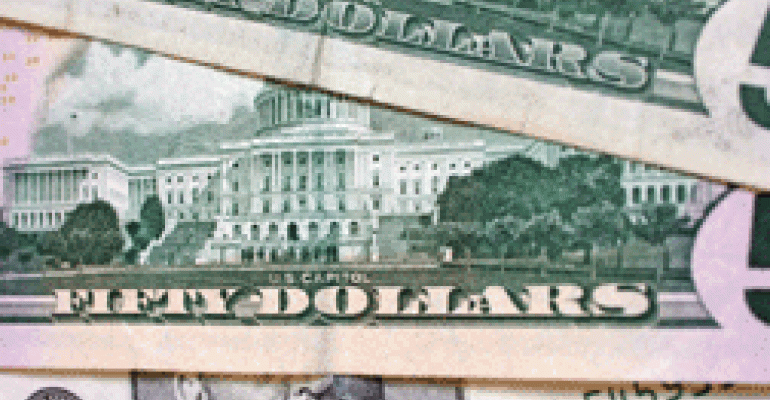
How much money did your clients lose last year? As has been well documented, investors lost trillions of dollars in 2008. It didn't have to be this way. You could have followed a simple, defensive investment approach that would have spared your clients from much of last year's pain.
What's the secret? Invest when Congress is in recess. It may sound a little crazy, but, when Congress works — and by “works” I mean “meddles” — it tends to inhibit wealth creation by increased regulation on businesses and, often, higher taxes. When Congress isn't in session, wealth grows much faster. From 1965 through 2008, there were 11,000 trading days; the annualized daily price gain (not including dividends) of the S&P 500 was just 0.31 percent when Congress was in session. Out of session, the S&P average return jumped to 16.15 percent, a daily difference of 50 times.
The trend has intensified in recent years right along with government growth. From 2000 through 2008, the in-session annualized daily performance of the S&P 500 was a negative 12.4 percent. The out-of-session performance: positive 8.8 percent. In other words, had you invested $10,000 only when Congress was in session from the beginning of 2000 through 2008, excluding dividends, you would have $4,615. Had you invested that same $10,000 only on days when Congress was on vacation, you'd have $13,416.
That's because the biggest risk in the market is the political risk that Congress will change the rules for many industries. This data has been corroborated by several academic studies, some going back over 100 years. It has even been given a term by Professor Robert Higgs of the Independent Institute, “regime change.”
What should really worry investors and money managers is that Democrats in Congress now have a filibuster-proof majority, control both houses of Congress and the Oval Office. There have been three periods since the Great Depression where this situation existed, and neither one was much fun for investors: 1935 through 1942, 1963 through 1966, 1977 and 1978. In gross price returns (again, excluding dividends) the stock market compounded at an average rate of 1.3 percent during those 14 filibuster-proof years, as compared with an overall average of 6.2 percent for all years since 1933.
Many believe the most productive activity for government is to maintain a level playing field to uphold uniform and fair rules of play for all. This kind of activity inspires confidence amongst market participants. But without a filibuster threat, Congress has the muscle to push through more ambitious reforms.
Businesses and investors, by and large, are not willing to gamble with their capital when they believe the rules governing their industry may change. They often take a step back so they can reevaluate how best to use their resources. (This plagued the economy during FDR's roll out of the New Deal.) For example, I believe that the straw that broke the camel's back for GM was the announcement by Speaker Pelosi in the fall of 2007 that there would be new, more stringent mileage standards. Obviously, many other factors contributed to GM's fall, including the bursting of the housing market bubble and GM's bloated union obligations. But when new mileage rules hit, which might have cost GM $6,000 per car, the firm's stock collapsed.
In recent months, consider how many government programs investors have been bombarded with: TARP, TALF, PPIP, auto-company bailouts, “cash for clunkers,” dinosaur-sized budget deficits, quantitative easing, foreclosure assistance, credit card reform, health care reform, “cap-and-trade,” increases to minimum wage, talk of increased taxes — and increasing unemployment.
It's true that the stock market has been soaring from its March lows. Only time will tell if the current rally is a dead-cat bounce or the beginning of a secular bull market. My strategy is to minimize political risk by not being long stocks when Congress is in session. In fact, my concern about the impact of “regime change” on the markets prompted me to open a mutual fund called the Congressional Effect Fund (symbol: CEFFX) which has outperformed the market since its launch in May of 2008. Of course, the primary goal is to do well for my investors while taking on less risk. The second goal is to help people understand the impact that government, especially Congress, can have on citizens' investments.
If, 10 years from now, the biggest result of launching the fund is simply that Congress takes an additional three months of vacation every year, a grateful nation will be much better off.
Writer's BIO:
Eric Singer
is the portfolio manager for the Congressional Effect Fund (CEFFX).






